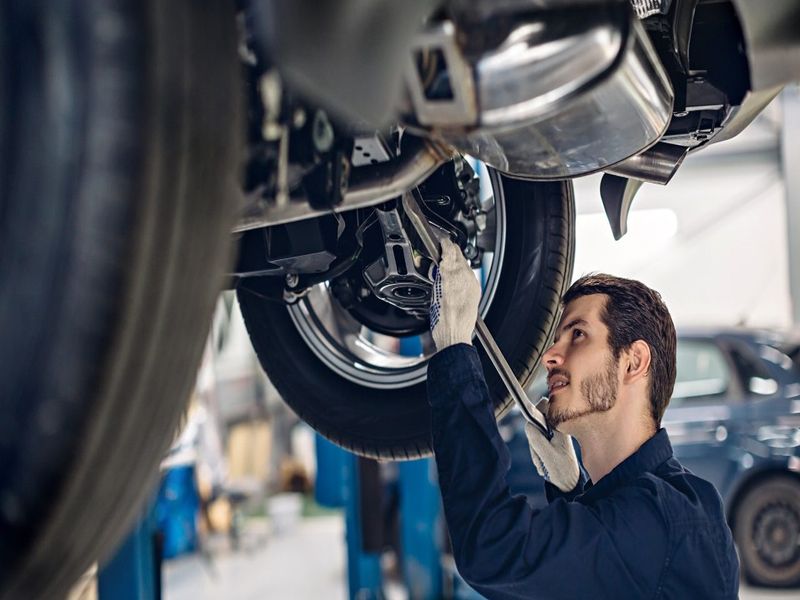✅ Last Update: May 15, 2025 @ 10:19 am
Regular car maintenance is crucial for keeping your vehicle in top condition. However, determining the appropriate service intervals can be confusing, especially for new car owners.
Several factors influence how often you should service your car, including the type of vehicle, driving conditions, and manufacturer guidelines.
- This guide will help you understand the importance of regular servicing and how to determine the right schedule for your car.
1. Importance of Regular Car Servicing
Regular servicing of your car is vital for several reasons:
- Safety: Routine checks can prevent potential issues, ensuring your car remains safe to drive.
- Performance: Regular maintenance helps your car run efficiently and reduces the likelihood of breakdowns.
- Resale Value: Well-maintained cars retain their value better and are easier to sell.
- Longevity: Regular servicing helps prevent major issues and extends the life of your vehicle.

2. Recommended Service Intervals
2.1. Manufacturer’s Guidelines
Every car comes with a manual that outlines the manufacturer’s recommended service intervals and timing belt replacements. These recommendations are specific to your car’s make and model.
Generally, these intervals are:
- Every 10,000 to 15,000 km: Common for most modern vehicles.
- Every 6 months to 1 year: If you drive less frequently.
2.2. New Zealand Driving Conditions
New Zealand’s varied driving conditions, from city commutes to rugged rural roads, can affect how often you should service your car. Consider the following:
- City Driving: Frequent stop-and-start driving in urban areas can cause more wear and tear, requiring more frequent servicing.
- Rural Driving: Dusty and rough rural roads can impact filters and suspension, necessitating more regular checks.
- Harsh Weather: Cold winters and humid summers can impact your car’s battery and fluids, making regular checks important.

3. Key Service Components
3.1. Oil and Filter Change
- Interval: Every 10,000 to 15,000 km or as recommended.
- Importance: Keeps the engine lubricated and removes contaminants.
3.2. Brake Inspection
- Interval: Every 10,000 km or during routine service.
- Importance: Ensures your braking system is functioning correctly for safety.
3.3. Tyre Check and Rotation
- Interval: Every 10,000 km.
- Importance: Ensures even tyre wear and extends tyre life.
3.4. Fluid Levels
- Interval: Every 6 months.
- Importance: Includes coolant, transmission, brake, and power steering fluids.
3.5. Battery Check
- Interval: Annually or every 20,000 km.
- Importance: Prevents unexpected battery failure.
3.6. Full Service
- Interval: Annually or every 20,000 km.
- Importance: Comprehensive check of all major systems, including belts, hoses, and the exhaust system.
4. Additional Tips for New Zealand Drivers
4.1. Seasonal Checks
Perform seasonal checks before winter and summer to ensure your car is ready for changing conditions. This includes checking the battery, antifreeze, tyres, and wiper blades.
4.2. Listen to Your Car
Pay attention to unusual noises, vibrations, or changes in performance, as these can indicate issues that need immediate attention.
4.3. Maintain a Service Log
Keep a detailed log of all services and repairs. This helps track maintenance history and is useful when selling the car.
4.4. Choose Reputable Mechanics
Select certified and reputable mechanics for servicing to ensure quality work. In New Zealand, the Motor Trade Association (MTA) provides a list of trusted service providers.

📝 Bottom Line
Regular car servicing is essential to maintain the safety, performance, and value of your vehicle.
- Adhering to these guidelines will help you enjoy a reliable and smooth driving experience on New Zealand’s diverse roads.







